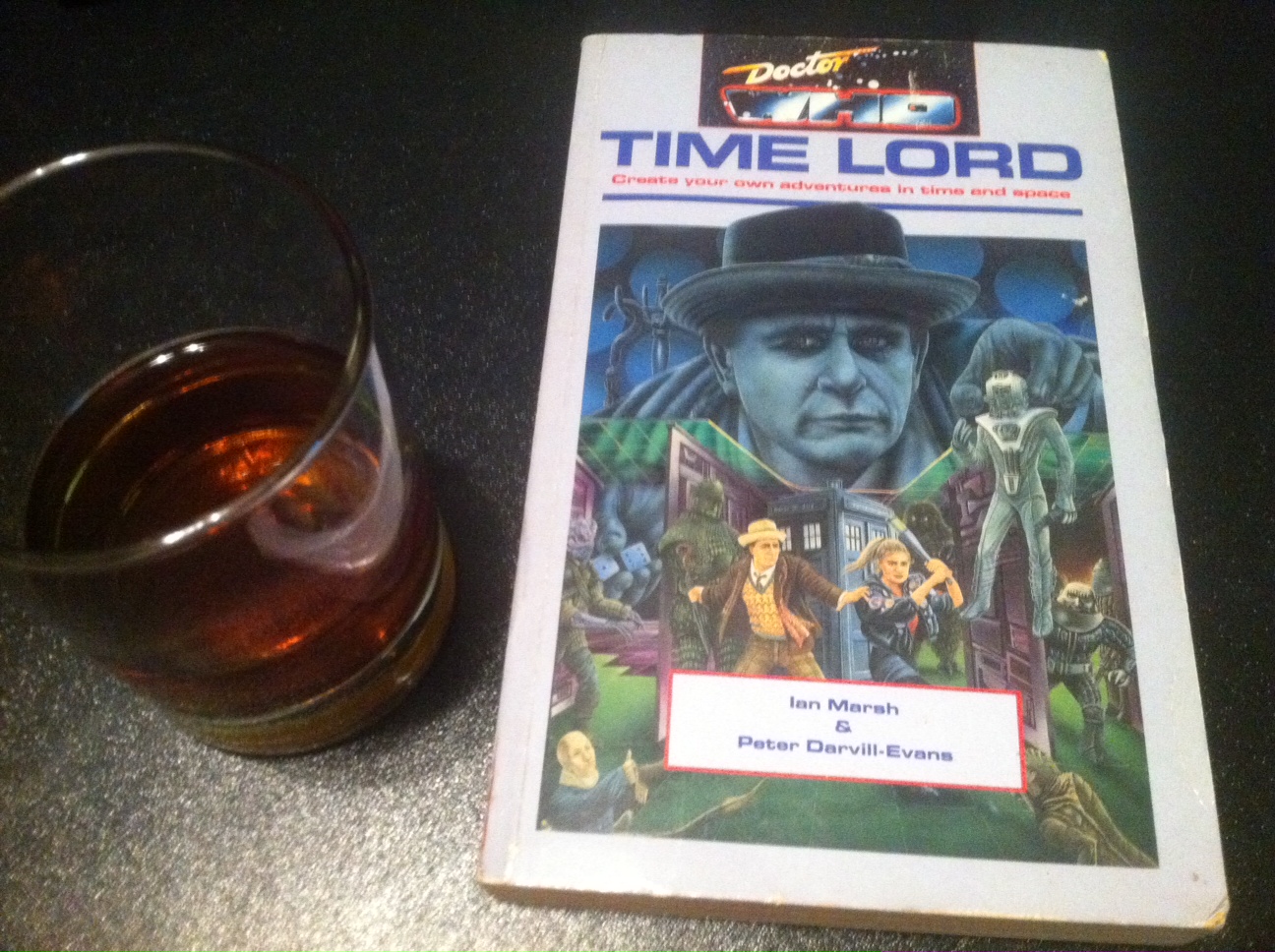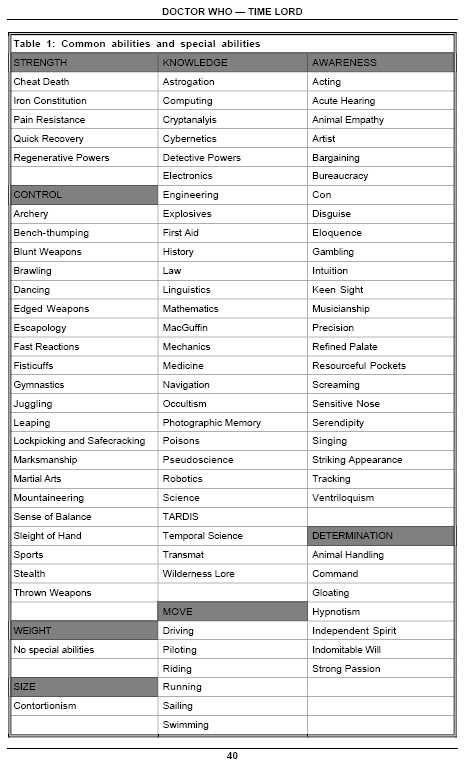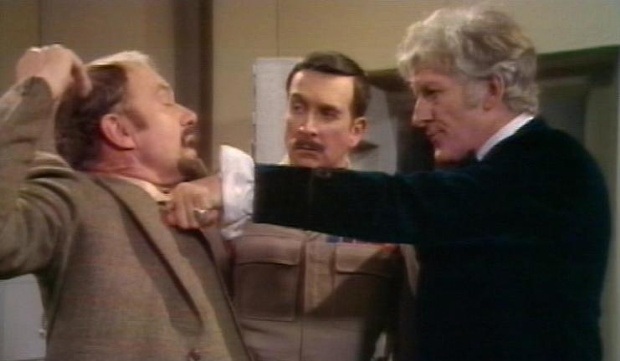I like bandwagons, I have booze, and I have a bargain basement RPG, which I had never seen before, and have not yet read.

This is the Doctor Who RPG, published in 1991. That's well before the BBC kicked off the new series, so we're doing this classic-style. That means Tom Bakewr pulling crazy faces instead of David Tennant. Now, I have a passing familiarity with classic Doctor Who, because when I was in the fifth grade and thought the Doctor Who novelizations were the best thing ever, and read all six of the ones the library had. Recently, I've also watched a smattering of the old series. That's more than enough familiarity to not go "WTF policebox?!", but less than enough to quote the fights historical from Master's plans to Daleks' ruin in order categorical.
Cover
First up, we need to talk about the cover. Here it is:

The booze is a rum which has been aged for seven years, which was a waste of seven years. It tastes like a nice rum which someone has mixed with a not-very-nice gin.
I've never heard of the authors. Some quick googling shows that they were together ast Games Workshop in the Eighties, after which Marsh became a writer, and Darveill-Evans became a manger at a company which produced both Doctor Who novels and erotic literature for men. So there's that. Anyway, FASA had the right's to Doctor Who until 1990 or so, and this came out pretty well immediately afterwards
Apparently, Marsh 'recovered' the rights in '96, and republished it for free on the interwebs. That's in astonishingly good taste, and makes me care more about this thing already. (If you'd like to follow along, look here. Heads up, it looks like there were a few major changes, and all the illustrations were cut.)
Introduction
This is a one page frontispiece about what is an RPG and what is Doctor Who, and also about the book's typesetting conventions. Compressing the Cops and Robbers speech into one paragraph is a bit ambitious, but good on them. I may not get through very much of this rum after all.
How refreshing.
Part One
The full title is actually "PART ONE <newline> DOCTOR WHO:<newline> A Legend In Its <newline> Own Primetime," which goes to show that formatting really can pad your pagecount. I don't know why they bother though, The next few pages are walls of text. This looks like 8 point, single spaced, no pictures. IT goes through the entire production history of the show, 1963-1990. Fun fact: it was originally planned as an educational program. Episode 2 introduced the Daleks.
Black and white pictures of the first seven doctors.
Then a two page subsection on The Doctor Who universe. We are promised that section four will be all about the Doctor Who universe though, so I'm not sure why you'd stick this in here. Apparently, the four most important topics, in order, are Gallifrey, Time Lords, TARDIS, The Doctor, and Companions. That's... probably fair.
Let's examine these real quick: "The Time Lord known as the Doctor, perhaps the most brilliant, erratic and mysterious of them all...has made it his mission to protect the weak and combat evil throughout the universe. He has developed a particular affection for the unpredictable inhabitants of the planet Earth, who are threatened throughout their history by alien invaders and by the results of their own waywardness." If this weren't a 50 year old character, I would swear his name was Gary.
Next we have the first chapter of The Necromancers, a novel featuring the Seventh Doctor. It's followed by a synopsis of the rest of the book. Here's the catch: this book was never published. If you're thinking that sounds like Darvill-Evens had a treatment lying around that he couldn't be arsed to finish, you and I are on the same wavelength. It's comfortingly schlocky though, so I'll give it a pass. Also, the synopsis drops down to about 6 point type. That's teeny-tiny.
The section ends with this admonishment. It's surprisingly good advice, and surprisingly restrained.
I should mention the illustrations too:Finally, it should be noted that a DOCTOR WHO story is often more than just a science fiction adventure cum detective thriller. Depending on how it was written, The Necromancers could contain a commentary on the evils of colonialism, for instance, or on the corrupting influence of political power. A background theme of this nature is not essential, but it does help to add an element of realism and significance to a story that might otherwise seem fanciful or trivial. When you create your own DOCTOR WHO adventures using TIME LORD, you will find that the players will become even more involved in their roles and in the plot if they believe that their characters are fighting a realistic injustice or a believable evil.

That's all for tonight. I'll do more sections over the next few days, but now I have only 8 hours left before I need to be alert and in a meeting.
Sneak Preview: flipping through to check if the illustration quality stays constant(it does), I found the character sheets. You can look forward to the Pseudoscience stat.





